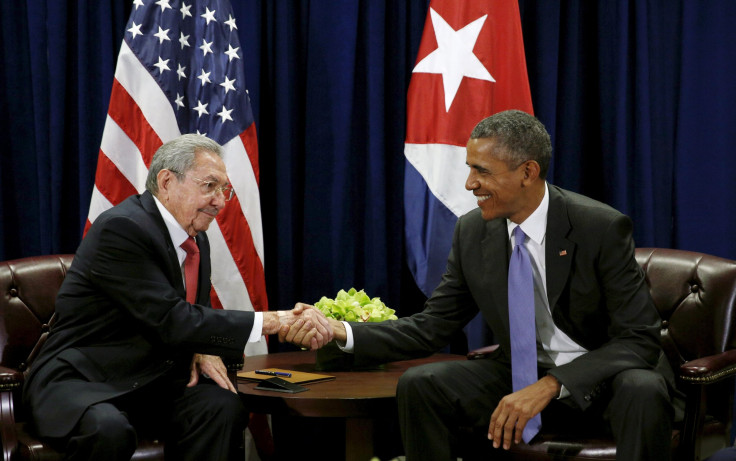Cuba Says Obama Welcome To Visit But Not To Meddle

U.S. President Barack Obama is welcome to visit Cuba but not to meddle in its internal affairs, a senior foreign ministry official said on Wednesday on the eve of the first anniversary of the two countries' historic rapprochement.
"The day that the president of the United States decides to visit Cuba, he will be welcome," Josefina Vidal, director of U.S. affairs in the Cuban foreign ministry, told reporters.
"Regarding what I just said, I'd like to recall that Cuba has always said ... it is not going to negotiate matters that are inherent to its internal system in exchange for an improvement in or the normalization of relations with the United States," Vidal said.
Obama told Yahoo News in an interview about the Dec. 17 anniversary that he hopes to visit Cuba in 2016 but only if enough progress has been made in bilateral relations, he is able to meet with political dissidents, and if he can possibly "nudge the Cuban government in a new direction."
It was a year ago that Obama and Cuban President Raul Castro shocked the world by announcing the former adversaries would normalize relations. By July they had agreed to restore diplomatic ties after a 54-year break.
RELATED COVERAGE
› U.S., Cuba say making headway on restoring commercial flights
Obama has about 400 days left in office before handing over to the next president, potentially a Republican hostile to his new Cuba policy.
Castro has 800 days left before stepping down and handing over power to a new Communist leader. Both have some urgency to cement the new relationship while advancing their strategic interests.
"We are playing a game of chess and we have to make a certain number of moves before the time is up," said Rafael Hernandez, a Cuban political analyst. "We have to make enough moves so that if there is an unfavorable change in the U.S. administration, we will be too far along to turn back."
In the year since detente, more Americans are visiting Cuba, and more Cubans are trying to reach America, concerned that preferential treatment for Cubans migrants may end. Under Cold War-era laws, Cubans are welcomed without a visa and given residency with relative ease.
Since detente, Cuban overland arrivals to the United States have soared nearly 80 percent while the number arriving by sea has more than doubled.
Since Obama eased restrictions on travel, U.S. visits to Cuba have climbed more than 70 percent, with 138,000 arrivals in the first 11 months of 2015.
(Reporting by Daniel Trotta, additional reporting by Jaime Hamre; Editing by Ken Wills)
© Copyright Thomson Reuters 2024. All rights reserved.




















